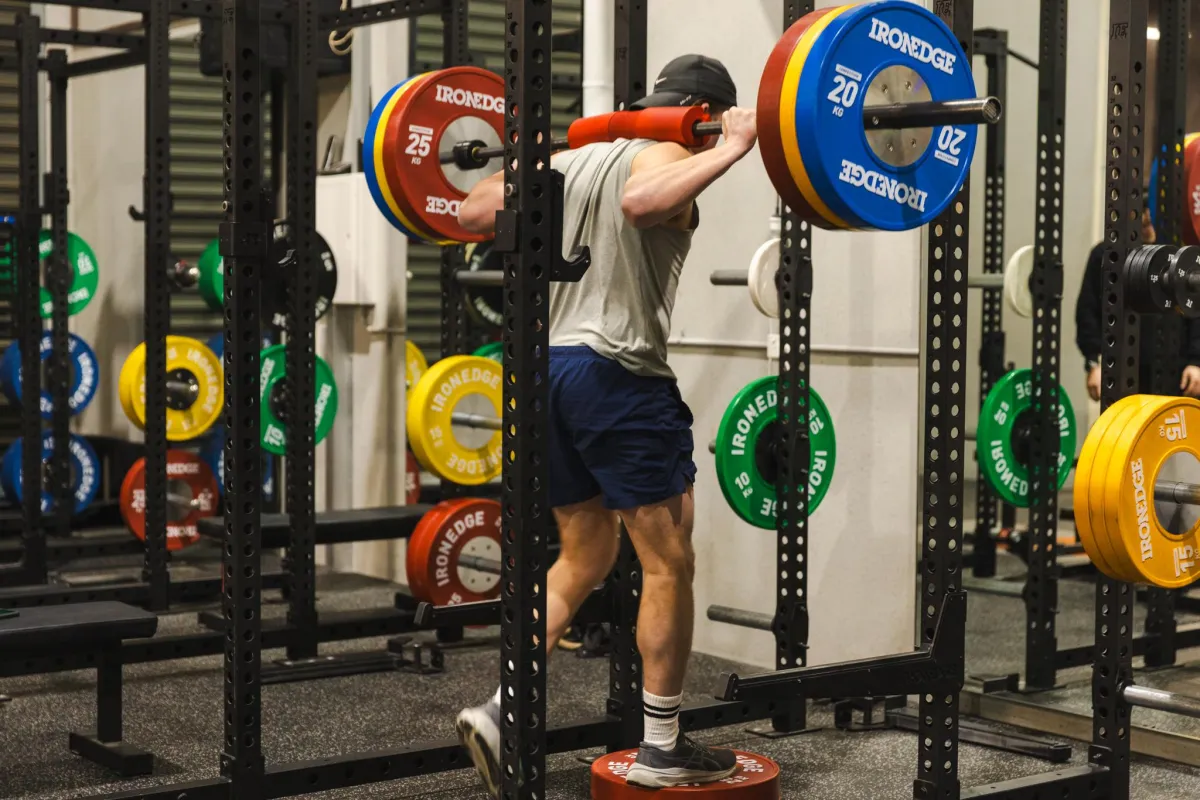Welcome To
Our Blog

Hip Flexor & Quad Strain Rehab | Sprint & Kicking Recovery
💥 Hip Flexor and Quad Strains in Field Sports: How to Rehab and Return Fast
Whether you're sprinting for a loose ball or launching a kick downfield, your hip flexors and quads are under huge stress. In sports like AFL, soccer, rugby, and athletics, strains to these muscles are extremely common — and often frustrating.
You might feel a sudden twinge when striking a ball, pulling up short while sprinting, or accelerating from a standing start. If not managed properly, these injuries become recurring and can affect every part of your game.
At Pivot Sports Performance, we specialise in high-performance rehab for field athletes with hip flexor and quad strains, helping you return to sprinting, kicking, and competition with confidence.
🔎 What Are Hip Flexor and Quad Strains?
Both muscle groups are critical for speed, control, and explosive movement:
Hip flexors (e.g. iliopsoas, rectus femoris) lift the thigh and generate power during acceleration, sprinting and kicking.
Quadriceps (a group of 4 muscles including rectus femoris and vastus lateralis) extend the knee and stabilise the hip.
These muscles are highly active in field sports — especially during repeated sprints, high-speed change of direction, and long-range kicking.
Strains occur when the muscle fibres are overstretched or overloaded under speed or fatigue, leading to small (or large) tears.
⚠️ Common Mechanisms of Injury
Overstriding during a sprint
Powerful kicks (especially when the foot slips on contact)
Sudden deceleration or change of direction
Fatigue, poor warm-up, or early return from previous injury
Hip flexor injuries are often felt deep in the groin or front of the hip, while quad strains usually present higher up near the front of the thigh.
🧊 Symptoms of a Strain
Sudden, sharp pain during sprinting or kicking
Pain or weakness lifting the leg or straightening the knee
Bruising or swelling in the thigh/groin
Tightness or “grabbing” feeling with sprinting or kicking
Loss of top-end speed or power
🧠 Rehab Strategy at Pivot Sports Performance
We don’t just stretch and rest — we rebuild you to be faster, stronger, and more robust than before.
✅ 1. Strength Through Full Range
We target:
Hip flexor strength in both shortened and lengthened positions (e.g. split squat holds, hanging knee lifts, Copenhagen hip lifts)
Isometric and eccentric quad work (e.g. Spanish squats, heavy step-downs)
We assess and progressively reload the entire anterior chain.
✅ 2. Sprint Mechanics + Running Drills
Poor hip mechanics or overstriding are common contributors to strain.
We coach:
Sprint drills (A-skips, bounding, resisted runs)
Trunk and pelvis control during acceleration
Strike positioning to reduce anterior overload
✅ 3. Return to Kicking and Ball Work
Kicking needs to be reintroduced gradually and technically.
We integrate:
Controlled low-velocity passing
Dynamic warm-up kicking drills
Full-velocity strikes only after clearance
Our physios work alongside skill coaches to align rehab with sport demand.
✅ 4. Clearance via Testing
Before return to full training, athletes must pass:
Hip flexor and quad strength symmetry >90%
Sprint, change-of-direction and deceleration capacity
Ball striking under fatigue and pressure
⏱️ Recovery Timelines
Grade I: 1–2 weeks
Grade II: 3–6 weeks
Grade III: 6–8+ weeks and may require imaging
Note: Rehab timelines vary depending on the role (e.g. midfielders and wingers typically require more reconditioning due to their sprint volume).
📉 Why Poor Rehab Leads to Repeat Injury
Returning too soon — especially without sprint testing or proper kicking re-integration — increases the chance of:
Re-straining the same site
Secondary injuries (groin, hamstring)
Ongoing pain with sprinting or kicking
Missed games and disrupted training loads
We make sure that never happens by testing performance, not just pain.
💬 Final Thoughts
Hip flexor and quad strains are common in fast-paced field sports — but with proper management, you can return to peak speed and power quickly.
At Pivot Sports Performance, we blend high-performance physiotherapy with advanced running, kicking, and strength programming — so you don’t just recover… you come back better.
01

Athlete Performance Program
High Performance Training Throughout Your Entire Season.
02

Sports Physio
Sport Specific Injury Management & Prevention
03

Concussion Clinic
Keeping Your Brain Safe With Up To Revolutionary Concussion Care
Website & Marketing Powered By Gymini


